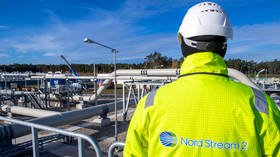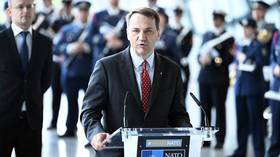Germany reveals long delay for Russian gas pipeline certification
The German Federal Network Agency, the Bundesnetzagentur, will not make a decision on the controversial Nord Stream 2 gas pipeline for at least another six months, the head of the governmental body revealed on Thursday.
The certification of the pipeline, which should have been completed in January 2022, was suspended in mid-November after the Bonn-based regulator insisted that Nord Stream 2 AG create a German subsidiary. The German Energy Ministry described the suspension as a regulatory issue and an interim step.
After certification, the documents must go to the European Commission, which will have two months to approve the pipeline to begin operations.
“Decisions will not be made in the first half of the year,” said Jochen Homann, the president of the Federal Network Agency. Homann said the certification process would continue when the relevant documents had been submitted to the authority in such a way that they could be audited.
Nord Stream 2 was completed in September and now connects Russia to Germany without passing through any third country. This means that, once it starts operation, gas transit will become less reliant on third parties, thereby lowering the price of the commodity.
The pipeline has, however, been opposed vehemently by politicians in Washington and Kiev, who claim that it will increase Europe’s reliance on Russian gas and reduce the continent’s energy security. The governments in Lithuania and Latvia have also supported calls for the new German government to use the Baltic Sea pipeline as leverage against Russia, with Latvian Prime Minister Krišjānis Kariņš calling it a kind of “blackmail” against the EU.
Earlier this month, Germany’s new foreign minister, Annalena Baerbock, said that the system can’t yet be launched because it doesn’t meet EU energy requirements.
“We also discussed this during the coalition negotiations, and therefore we enshrined in the coalition agreement that European energy law applies to energy projects,” she said. “And that means that, as things stand, this pipeline cannot be approved.”














